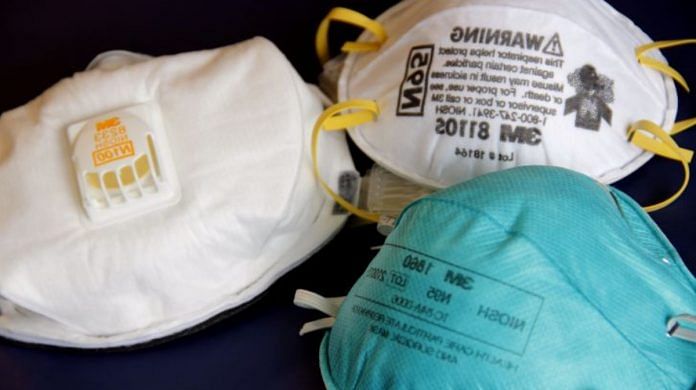Geneva: A growing number of export bans on medical goods is exacerbating the challenges for medical professionals worldwide who are scrambling to find more face masks, ventilators and other life-saving equipment needed to fight the coronavirus pandemic.
This year some two dozen nations — including China and India — have begun to restrict or ban exports of medical gear like masks, gloves, protective suits and disinfectant. A key player joined the fray last week when the European Union, the world’s largest trading bloc, imposed a prohibition on the export of certain medical supplies to prevent them from going outside the 27-nation union.
While a nearly two-year trade war between the U.S. and China weighed on economic growth, protectionist measures to fight a virus that knows no borders threatens to widen the human toll. One trade expert is warning that by restricting exports of certain key products, governments are risking the disruption of critical supply chains and discouraging local firms from increasing production just when more supplies are needed.
“The incoherence between national trade policies and medical response threatens the lives of people at home and abroad, including those of front-line health professionals,” said Simon Evenett, a professor at the University of St. Gallen in Switzerland.
Ventilator Makers Ramp Up as Coronavirus Drives Hospital Demand
Take for example, ventilation machines, which are produced by manufacturers in rich countries like Germany and Switzerland. Many of those producers depend on tight-knit global supply chains, where key components are manufactured or assembled abroad and shipped for just-in-time delivery.
If governments impose poorly defined export restrictions, it could have the potential to slow down the delivery time for manufacturers and create production bottlenecks for life-saving equipment, Evenett said in a phone interview.
“This is exactly the problem with export quotas,” Evenett said. “They are frustrating finely tuned medical supply chains. If someone desperately needs a respirator and they can’t get it — we are talking about life and death.”
That’s a critical consideration at a time when a shortage of ventilation machines in Italian hospitals are forcing doctors to deny life-saving treatment to some patients in order to save those with the greatest likelihood of surviving.
A better approach, Evenett argues, would be for governments to offer a guaranteed high minimum price for certain medical products for a fixed period of time. That way medical companies know they can ship their goods at a set price that guarantees a continued revenue stream.
“That is a hell of a lot more market-friendly than a government requisitioning all output or taking over the factories themselves,” Evenett said.
Such an approach could also give companies incentives to switch from producing consumer goods to manufacturing essential medical goods to combat the virus.
That could motivate more firms to follow the example of French luxury goods manufacturer LVMH, which announced last week it would to convert their cosmetic factories to producing hand sanitizer.
Proponents of export controls and the dismantling of international supply chains include White House trade adviser Peter Navarro, who raised eyebrows when he warned that fights over key equipment loomed and told Fox Business Network on Feb. 23: “People need to understand in crises like this, we have no allies.”-Bloomberg
Also read: Plastic surgeons in the coronavirus fight? Doctors are doctors



